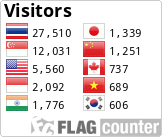Keywords
Breast cancer, Multidisciplinary team (MDT), Thailand, Patient-centered care, Quality assessment tools
Abstract
Breast cancer treatment has been revolutionized through the implementation of Multidisciplinary Care Teams (MDTs), significantly enhancing patient outcomes. This review outlines the essential components of MDTs in breast cancer care, summarizes evidence supporting their effectiveness, and highlights their role in addressing key challenges within the Thai healthcare system. We discuss quality assessment tools, propose an optimized MDT workflow, and explore the integration of emerging technologies to further advance patient-centered care.
References
Virani S, Chindaprasirt J, Wirasorn K, et al. Breast cancer incidence trends and projections in Northeastern Thailand. J Epidemiol. 2018;28(7):323–30.
Lakha F, Suriyawongpaisul P, Sangrajrang S, et al. Breast cancer in Thailand: Policy and health system challenges to universal healthcare. Health Policy Plan. 2020;35(9):11591167. doi: 10.1093/heapol/czaa063
Ho PJ, Cook AR, Binte Mohamed Ri NK, et al. Impact of delayed treatment in women diagnosed with breast cancer: Apopulation-based study. Cancer Med. 2020;9(7):2435–2444. doi: 10.1002/cam4.2830
Gabel M, Hilton NE, Nathanson SD. Multidisciplinary breast cancer clinics: Do they work? Cancer. 1997;79(12):2380–4.
Borras JM, Albreht T, Audisio R, et al. Policy statement on multidisciplinary cancer care. Eur J Cancer. 2014;50: 475–80.
Selby P, Popescu R, Lawler M, Butcher H, Costa A. The value and future developments of multidisciplinary team cancer care. Am Soc Clin Oncol Educ Book. 2019;39:332–340. doi: 10.1200/EDBK_236857
Oxford University Hospitals NHS Foundation Trust. Multidisciplinary teams (MDT). 2021. Available at: https://www.ouh.nhs.uk/haematology/team/mdt.aspx. Accessed April 15, 2024.
Hanna N. Leveraging the virtual landscape for effective multidisciplinary care. Presentation. ASCO Annual Meeting. June 4, 2021.
Scott B. Multidisciplinary team approach in cancer care: A review of the latest advancements featured at ESMO 2021. 2022.
Jongudomsuk P, Srithamrongsawat S, Patcharanarumol W, et al. The kingdom of Thailand: Health system review. Geneva: WHO on behalf of: Asia Pacific Observatory on Health Systems and Policies. 2015.
Silverstein J, Post AL, Chien AJ, et al. Multidisciplinary management of cancer during pregnancy. JCO Oncol Pract. 2020;16:545–57. doi: 10.1200/OP.20.00077
Saini KS, Taylor C, Ramirez A-J, et al. Role of the multidisciplinary team in breast cancer management: Results from a large international survey involving 39 countries. Ann Oncol. 2012;23(4):853–9. doi: https://doi.org/10.1093/annonc/mdr352
Fleissig A, Jenkins V, Catt S, Fallowfield L. Multidisciplinary teams in cancer care: Are they effective in the UK? Lancet Oncol. 2006;7(11):935–43.
Chang JH, Vines E, Bertsch H, et al. The impact of a multidisciplinary breast cancer center on recommendations for patient management: The University of Pennsylvania experience. Cancer. 2001;91(7):1231–7.
Tsai CH, Hsieh HF, Lai TW, et al. Effect of multidisciplinary team care on the risk of recurrence in breast cancer patients: A national matched cohort study. Breast. 2020;53:68–76. doi: 10.1016/j.breast.2020.07.001
National Cancer Action Team. The characteristics of an effective multidisciplinary team (MDT). Available from: http:// www.ncin.org.uk/cancer_type_and_topic_specific_work/multidisciplinary_teams/mdt_development. Accessed April 15, 2024.
Lamb B, Wong H, Vincent C, et al. Teamwork and team performance in multidisciplinary cancer teams: Development and evaluation of an observational assessment tool. BMJ Qual Saf. 2011;20(10):849–56.
Lamb B, Miah S, Skolarus T, et al. Development and validation of a short version of the metric for the observation of decisionmaking in multidisciplinary tumor boards: MODe-Lite. Ann Surg Oncol. 2021;28(12):7577–88.
Taylor C, Atkins L, Richardson A, et al. Measuring the quality of MDT working: An observational approach. BMC Cancer. 2012;12(1):202.
Harris J, Taylor C, Sevdalis N, et al. Development and testing of the cancer multidisciplinary team meeting observational tool (MDT-MOT). Int J Qual Health Care. 2016;28(3):332–8.
Taylor C, Brown K, Lamb B, et al. Developing and testing TEAM (Team Evaluation and Assessment Measure), a self-assessment tool to improve cancer multidisciplinary teamwork. Ann Surg Oncol. 2012;19(13):4019–27.
Jalil R, Soukup T, Akhter W, et al. Quality of leadership in multidisciplinary cancer tumor boards: Development and evaluation of a leadership assessment instrument (ATLAS). World J Urol. 2018;36(7):1031–8.
Lamb B, Sevdalis N, Vincent C, et al. Development and evaluation of a checklist to support decision making in cancer multidisciplinary team meetings: MDT-QuIC. Ann Surg Oncol. 2012;19(6):1759–65.
Brown GTF, Bekker HL, Young AL. Quality and efficacy of Multidisciplinary Team (MDT) quality assessment tools and discussion checklists: A systematic review. BMC Cancer. 2022;22:286. doi: 10.1186/s12885-022-09369-8
Gianni L, Pienkowski T, Im Y-H, et al. Efficacy and safety of neoadjuvant pertuzumab and trastuzumab in women with locally advanced, inflammatory, or early HER2-positive breast cancer (NeoSphere): A randomised multicentre, open-label, phase 2 trial. Lancet. 2012;13:25–32. doi: 10.1016/S14702045(11)70336-9
IBM Watson for Oncology. Agreement with an expert multidisciplinary tumor board for breast cancer treatment recommendations. Available at: https://research.ibm. com/publications/watson-for-oncology-and-breast-cancertreatment-recommendations-agreement-with-an-expertmultidisciplinary-tumor-board. Accessed December 2024.
DeepMind Health. Using AI to plan head and neck cancer treatments. Available at: https://deepmind.google/discover/ blog/using-ai-to-plan-head-and-neck-cancer-treatments. Accessed December 2024.
Recommended Citation
Eiamprapaporn, Panuch; Patanayindee, Panchanin; Wanishtanom, Lucksika; Rattanabunjerdkul, Hataiwan; and Sujarittanakarn, Sasithorn.
2025
A Review Article on Optimizing Breast Cancer Care Teams Through Multidisciplinary Approaches.
Asian Medical Journal and Alternative Medicine. 25,
1 (Apr. 2025 ), 45-47.
Available at: https://doi.org/10.70933/2773-9465.1008



